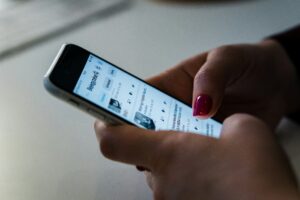Feature Photo by dlxmedia.hu on Unsplash
My name is Zejun but most of my friends call me Leslie. I am in my third year at UVic, and I major in Economics and minor in Business. When I was at Coquitlam College, I took my first accounting course and fell in love with it immediately. I decided to pursue economics and business. I prefer macroeconomics because it touches on issues like inflation which is an important factor in maintaining a healthy and vibrant economy. My dream is to one day work in investment banking.
Distributed education is a flexible learning model where instruction and resources are spread across various different locations, often using technology. Students can access lessons online, collaborate via video calls, or learn at their own pace. It benefits those unable to attend traditional campuses due to geographic, work, or personal reasons. During the pandemic, when schools and universities were shut down , I experienced first hand how distributed education helped in bringing online classrooms to individual homes where students live. It was because of this learning model that prevented disruptions in our educational journey.
Open education allows one to freely access educational practices and resources, such as open textbooks and online courses. Its main purpose is to make learning more inclusive by removing barriers like cost, location, and time, while promoting the broad and free sharing of knowledge. Education is a universal right no matter one’s economic background is; and barriers to access education should be made as low as possible. Therefore, the concept of open education fits perfectly with the principle of inclusivity and equality.
Learning occurs through different modes, including face-to-face learning in a traditional classroom, online learning via the internet (either live or self-paced), and blended learning, which combines both in-person and online instruction. I prefer online learning because it is more convenient as I can attend in the comfort of my room. Moreover, most of the lectures are recorded which allows me to go back to listen many times.

Being digitally literate means having the skills and know-how to use digital tools and technologies effectively. It is especially important when one is engaged in open and distributed learning environments when submitting assignments online and doing projects using PowerPoint, etc. Online classes are conducted mostly on Zoom and to be digitally literate is to have the ability to know all the various functions of Zoom technologies which will allow for the enjoyable learning experience and intellectual growth.
Even though I have an Instagram account, I do not post anything on it. I use Instagram only for communication purposes and browsing other people’s contents and photos. My X account is also mostly empty. My digital identity currently is almost non-existent.